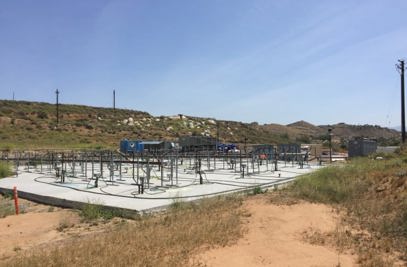Blog
Welcome to our thermal soil remediation blog series! We're excited to share with you how we use heat to eliminate hazardous pollutants and create sustainable land. In this series, you'll learn about Thermal Conduction Heating, Steam Enhanced Extraction, and Electrical Resistance Heating. We'll provide you with expert insights, case studies, and resources to help you succeed in the field. Keep reading!
Answers to Your Questions about In Situ Thermal Remediation and Subsidence Risks
More and more frequently, In Situ Thermal Remediation (ISTR) is used to treat contamination located below buildings, roadways, and other critical infrastructure. Subsidence (vertical downward movement...
What Is Electrical Resistance Heating (ERH) and How Does It Work?
When you are new to the thermal remediation industry, choosing the best technology can be overwhelming and confusing. Each heating technology has its own strengths and weaknesses depending on th...
What is In Pile Thermal Desorption (IPTD®)?
If you are not familiar with thermal treatment, then In Pile Thermal Desorption (IPTD®) is something you have probably never heard of before. You may be wondering, what is it? How does it wo...
An Introduction to Thermal Conduction Heating (TCH)
If you’re new to the environmental services industry, you may know about thermal remediation but not understand the differences between the different heating technologies. Each technology has its own ...
Can Thermal Remediation Be Sustainable?
Thermal remediation has traditionally been seen as a high resource and large infrastructure technology, and that has led many consultants to dismiss it in favor of more sustainable remedies. But what ...
3 Key Things to Know About Vapor Monitoring at a Thermal Remediation Site
Vapor monitoring is a key component to any thermal remediation project, but it is subject to a unique set of challenges. For many contaminants, such as chlorinated solvents, typically more than 95% of...
How to Get the Best Remediation Bids From Your Bidders, Part 2
Going through the RFP process can be a major headache. As a consultant, you not only have to write the request, but then go through the lengthy proposals your bidders provide, trying to evaluate what ...
How to Get the Best Remediation Proposals From Your Bidders, Part 1
You have carefully characterized the site, evaluated remedial technologies, and determined that in situ thermal remediation (ISTR) is the best option. The next step is to send out a request ...
Hydraulic and Pneumatic Control 101: The Basics You Need to Understand for a Thermal Remediation Project
No matter the thermal heating technology, one of the biggest balancing acts when it comes to in situ thermal remediation (ISTR) is injecting enough energy into the subsurface to sufficiently heat the ...
How Do You Manage Treatment of Liquid Waste Streams From a Thermal Remediation Project?
Liquid waste is an issue for every thermal remediation project, no matter the heating technology you choose. This means that when you choose a thermal solution for your project, you need to understand...
ERH or TCH, That Is the Question – Similarities and Differences and How to Choose
Two of the primary thermal heating technologies—electric resistance heating (ERH) and thermal conduction heating (TCH) – have many similarities, and it can be hard to figure out which o...
Numerical Modeling in Thermal Remediation: Taking Your Site Information and Generating the Best Path Forward
If you have a site that is impacted by subsurface contamination and targeted for thermal remediation, it will require in-depth research and calculations to determine how best to design the therma...
- « Previous
- 2
- 3
- 4
- …
- 5
- Next »













